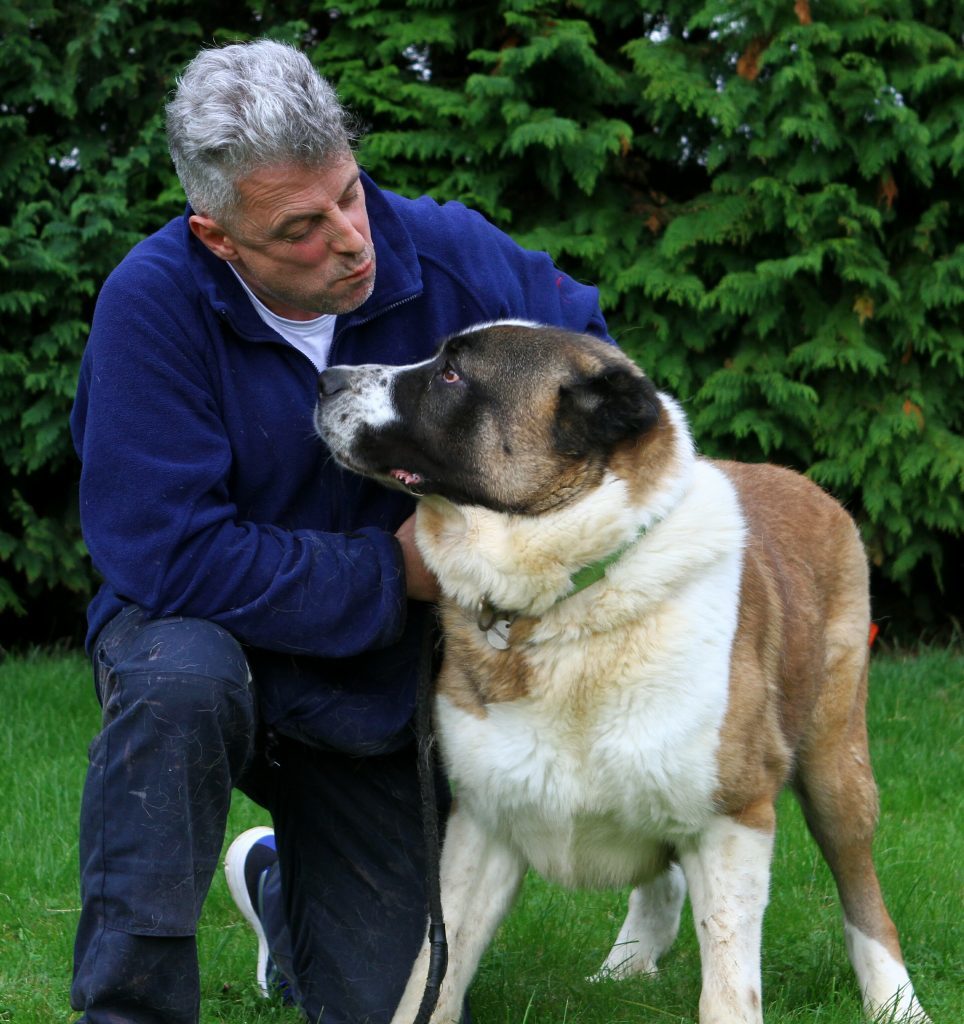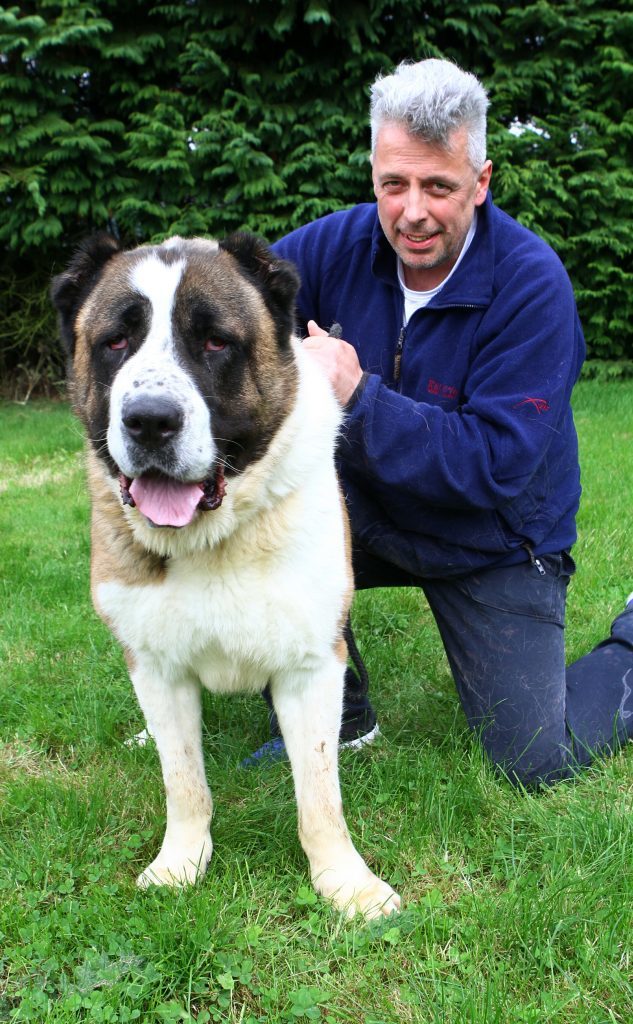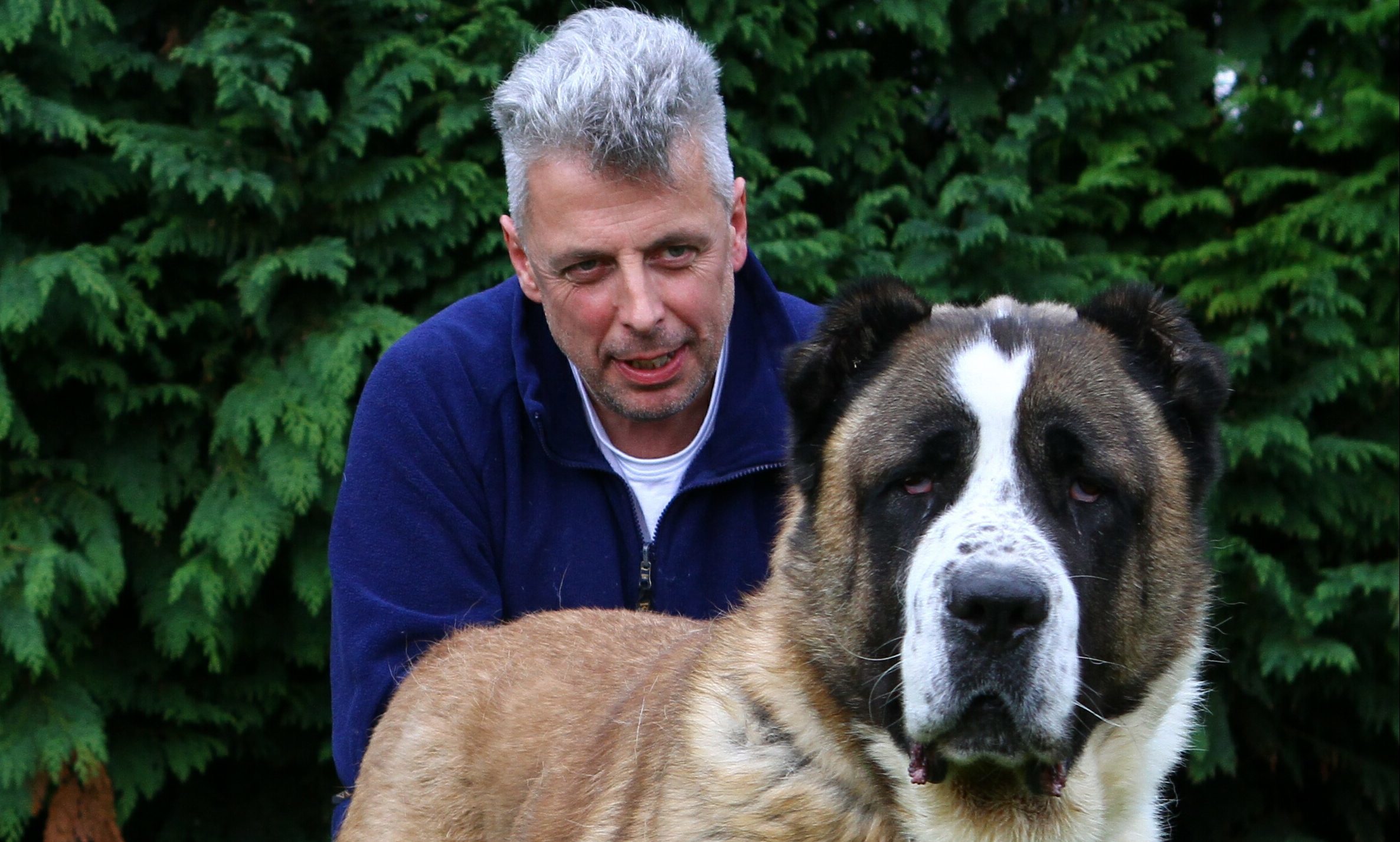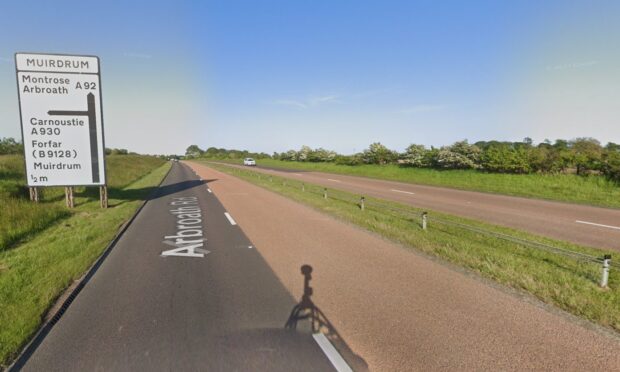A senior Angus solicitor has called for a ban on electric shock collars after a “cursed” dog was saved from death row.
Nick Whelan wants the Scottish Government to ban the “barbaric” devices which deliver a shock to pets as punishment for bad behaviour.
His demand came after a decision to destroy three-year-old rescue dog Douglas was overturned by appeal judges in Edinburgh.

It is understood the St Bernard “went berserk” and killed four-month old Jackadoodle Buzz at an Angus beauty spot after the shock collar was activated.
Douglas is originally from Bulgaria where he spent his early life being abused by cruel shepherds who chained him to a post and used him to guard sheep.
He was saved by a vet when locals hatched a murderous plot to shoot him because they were convinced he was possessed by a gypsy curse.

Appeal sheriffs said this week that abuse contributed to his reaction to the electric collar.
Mr Whelan said: “Electric shock collars must be banned.
“The Scottish Parliament must look at this as a matter of urgency to stop incidents like this happening again.
“The next time it could be a child unless we address this problem.
“Research suggests the dog can’t source the pain so it just lashes out at anything in front of it.”
Sarah Connor’s four-month-old jackadoodle was mauled to death by Douglas at West Links in Arbroath on May 10.
Buzz was on the lead but was chased by Douglas and a rottweiler
Douglas was one of six dogs being walked by ex-soldier Philip Pudney.
Mr Whelan, who was representing the charity Saving Saints Rescue UK, said: “The collar played a significant part in this case.

“I have every sympathy for the family whose pet was killed.”
Pudney cared for the dog as part of his role with the rescue charity.
Saving Saints founder Anne-Marie Luckhurst successfully lodged an appeal on Wednesday to overturn the sheriff’s ruling and take ownership of the dog.
The Welsh Assembly banned the use of electric collars in 2010 and imposed a penalty of a fine of up to £20,000 or up to six months imprisonment.
Ministers in Scotland are now considering a similar approach north of the border and have consulted on the use of all electronic training aids, such as shock collars and boundary fence systems.










